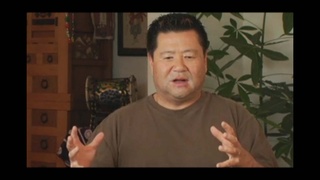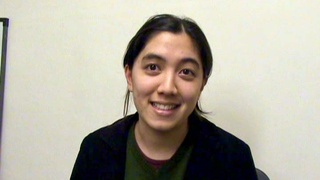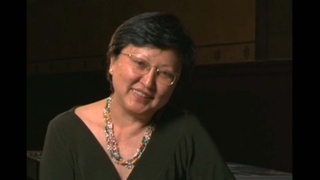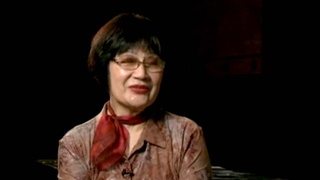Interviews
Yes, Nikkei culture exists (Spanish)
(Spanish) People identify us as a group; perhaps to some [of these people we are a] closed [group], but [one] that has very well placed values. A Nikkei culture -- precisely what I had told you in [my responses to] the previous questions -- a Nikkei identifies with very positive values. Therefore, Nikkei culture, a sum of all the folklore that we can bring, be it odori, eisa, shamisen – shamisen on the Japan side, sanshin on the Okinawa side, all this kind of mixed cultural expressions of Nikkei identity, and its values, make up what we call Nikkei culture. Definitely [Nikkei culture] exists, and it definitely not only exists but that each of us transmits it.
Date: September 14, 2007
Location: Lima, Peru
Interviewer: Harumi Nako
Contributed by: Asociación Peruano Japonesa (APJ)
Explore More Videos


Thoughts on the term, "Nikkei"
(b. 1949) Musician and arts educator and adminstrator.


The importance of learning cultural diversity (Spanish)
Sansei Argentinean

Conflicting relations between Argentina and Japan (Spanish)
(1925-2014) La Plata Hochi, Journalist



Need generational change in Japanese community (Spanish)
(1925-2014) La Plata Hochi, Journalist


Defining the term "Nikkei" (Portuguese)
Former Director, Museu Histórico da Imigração Japonesa no Brasil

Brazilian of Japanese descents (Portuguese)
Former Director, Museu Histórico da Imigração Japonesa no Brasil

Japan's impact on the image of Nikkei in Brazil (Portuguese)
Former Director, Museu Histórico da Imigração Japonesa no Brasil

Change in sense of Nikkei Brazilian identity over time (Portuguese)
Former Director, Museu Histórico da Imigração Japonesa no Brasil

Nikkei community concentrated in São Paulo (Portuguese)
Former Director, Museu Histórico da Imigração Japonesa no Brasil

Defining "Nikkei" through lineage and community involvement (Spanish)
Nisei Paraguayan, Researcher
